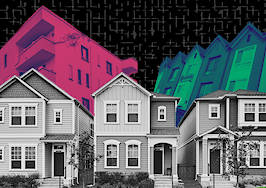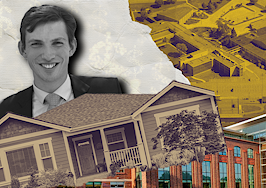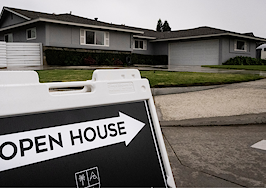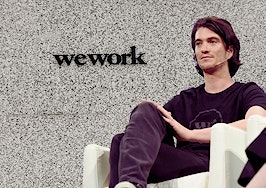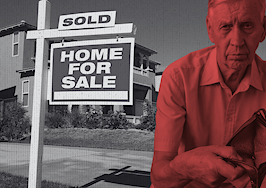The verdict is in — the old way of doing business is over. Join us at Inman Connect New York Jan. 23-25, when together we’ll conquer today’s market challenges and prepare for tomorrow’s opportunities. Defy the market and bet big on your future.
CHICAGO — Alejandro Cuevas and his wife Jessica own a home in northwest Chicago, but they don’t have a house payment.
They live with their two young kids in one of the units in a three-flat they recently bought in the city’s Mayfair neighborhood, among a collection of century-old one- and two-family homes far away from the Second City’s skyline.
But each month when the bill comes due for the house, the Cuevases don’t reach for the checkbook — their renters do it for them.
“The first two units pay for the entire mortgage,” Alejandro Cuevas, 34, said.
The Cuevases are a textbook example of “house hackers,” a rapidly growing trend in which new real estate investors build their property portfolio by renting out space in the property in which they reside. That could include renting out additional units if the property has more than one, or simply a spare bedroom, but the goal is always to offset some or all of the monthly payments, thereby freeing up cash to invest in another property later.
The concept has grown in popularity in recent years among a subset of investors who tout it as a way to keep personal housing costs down. But in practice, house hacking has been declining in the U.S. in recent years.
Just 2.2 percent of all homes sold nationwide between 2009 and 2022 were two- to four-unit properties — a common target among house hackers — according to Fannie Mae. That’s down from an average of 3.6 percent between 2003 and 2007.

Shant Banosian | Executive Vice President of Guaranteed Rate
The Cuevases are among a handful of new investors who showed how house hacking can lower housing payments at a time when the cost of buying a house has never been higher thanks to high interest rates, high home prices and low inventory, along with rents near record highs.
Near the end of 2023, Fannie Mae lowered the minimum down payment required to purchase certain multi-family properties, teeing up 2024 as the year of the house hacker. Indeed, by allowing buyers to put as little as 5 percent down to secure properties ranging from two units to four units, the practice of accruing property through house hacking is set to soar next year, experts told Inman.
“There were a lot of people who wanted to buy multifamily homes before but didn’t have the down payment,” said Shant Banosian, executive vice president of Guaranteed Rate. “It’s been massively well received.”
The history of house hacking
Once a way for multiple generations to live on the same property, house hacking declined in recent years after lenders increased the minimum down payment to buy multi-unit homes, according to Fannie Mae.
Before the Great Financial Crisis, buyers could put as little as 5 percent down to buy a two- to four-unit property. After the crisis, Fannie Mae and Freddie Mac increased the minimum down payment for those properties to 20 percent.
In the ensuing 13 years, the proportion of home sales that contained two to four units fell, Fannie Mae said. As a result, the government-sponsored enterprise in November 2023 began offering 5 percent down payments again.
Research from the Institute for Housing Studies [IHS] at DePaul University in Chicago shows there was growing interest in buying two- to four-unit properties starting in 2021, when housing prices were rapidly spiking.
On average, 11.3 percent of all homes sold between 2018 and 2020 were two- to four-unit properties, according to IHS. That rose to 11.9 percent of homes sold in 2021.
The interest is even greater among minority residents in large U.S. cities, according to Fannie Mae and IHS data.
While its use has declined in recent years, there are indications of rising interest in house hacking as a way to get involved in real estate investing.
Google Trends shows that, starting around mid-2015, people began typing the phrase or some variation of it into the search engine giant. Interest spiked at the height of the coronavirus pandemic, data shows.
House hacking is unique in that it allows real estate investors to buy multiple income-producing units with conventional financing and a low interest rate, rather than the higher rates investors pay for commercial real estate. The one catch is that buyers need to live on the property for at least a year, according to the real estate investing platform BiggerPockets.

Melinda Wilner | UWM Chief Operating Officer
That makes two- to four-unit properties a prime target for house hackers. Anything with five or more units is considered a commercial property and comes with higher lending costs and more strings attached. Anything with four or fewer units, meanwhile, is still residential and qualifies for conventional financing.
Historically, investors buying two- to four-unit properties needed to come up with a down payment worth 15 percent to 25 percent of the purchase price, creating a hurdle for first-time investors. In late November, Fannie Mae lowered that down payment minimum to 5 percent, a change that will open the door to first-time house hackers heading into 2024.
“This is really a way to … make it easier for a good segment of the population to do something like this — win offers and move into houses like this,” said Melinda Wilner, chief operating officer at United Wholesale Mortgage.

Sarita Scherpereel | Kale Realty Chicago
Not only can it help offset monthly housing costs, but once buyers become house hackers, they’re on a path to becoming full-time real estate investors, said Sarita Scherpereel, an investor-friendly agent who herself is a house hacker.
“The best part about the two- to four-unit inventory and this loan program that’s coming out is you can get into a building with very little capital,” she said. “It’s a really good first step into that inventory with as little skin in the game as possible.”
Eliminating housing payments
The Cuevases were living in a home they owned in suburban Chicago when they decided they wanted to move back to their roots in the city.
They owned a single-family home in the southwest suburb of Bolingbrook, but she and her husband found their daily experience outside the city too sleepy and looked for a way to move back.
They both grew up in multi-unit properties their families owned. But that was before the idea of house hacking grew in popularity, Jessica Cuevas, 34, said.
“Technically our families were house hackers but that language wasn’t even mentioned,” she said. “They don’t even know what that means.”
Still, with more units in a building, she thought, her chances of being able to own a multi-unit property were low.

Jessica and Alejandro Cuevas stand in front of their three-unit property in Chicago’s Mayfair neighborhood.
“We thought that the more units a building has, the likelihood of you buying is not seemingly possible,” Jessica Cuevas said.
The home search took them about five months while they looked for two- and three-unit homes somewhere on the city’s north side.
After working with an investor-friendly real estate agent, they found one for $390,000 in Mayfair.
Buying the 117-year-old property meant a bit of rehab was needed, as is often the case for house hackers who have the potential to increase income by updating units. Being handy — or knowing someone who is — can help keep costs down.
“We are extremely fortunate that we have family that work in the construction field,” Alejandro Cuevas said. “They’re helping a lot with the cost.”
They received some help from relatives in the area who helped keep costs down while performing about $15,000 worth of updates to the units.
The Cuevases took one of the smaller units available to help make sure the other two units covered the mortgage.
The house costs $2,987 each month, Alejandro Cuevas said. The first unit brings in $1,600 a month in rent. The second brings in $1,400.
“We really don’t have monthly expenses,” Cuevas said. “All that comes out of our pockets is the utility bill, which was $52 this month.”
That’s a far cry from when the Cuevases were living in a single-family home in the suburbs west of the city. They’re living in the third-largest city in the country with next to no living expenses.
“My aspiration is to keep buying,” Alejandro Cuevas said. “I would love to own like 10-15 properties in Chicago.”
The Cuevas family’s experience shows how house hacking can change a house hunt from disbelief that they could find a spot in the city to working with an investor-focused agent on finding the first of what may be many eventual purchases.
Fannie Mae said it’s looking to create that opportunity for even more people.
Why Fannie’s change matters
In a white paper announcing the change, Fannie Mae shared data showing that the change was likely to help people of color.
The types of housing conducive to house hacking are found in older neighborhoods of large cities like Chicago and Boston, and in neighborhoods that have higher populations of minority households.

Chicago’s neighborhoods are full of two- to four-unit properties that offer ample opportunity to house hack. (Photo by: Jumping Rocks/Universal Images Group via Getty Images)
“We believe the updates that we are making help to improve fair assessment of potential borrowers that provides for a more equitable and sustainable access to homeownership,” Fannie Mae said, “while continuing to appropriately manage credit performance of these loans.”
What’s more, Black and Hispanic residents are more likely to own or rent two- to four-unit properties, according to researchers.
In Chicago, 28.1 percent of all loans for two- to four-unit homes were to Black residents, compared to just 11.5 percent for single-unit homes like single-family homes and condos, according to DePaul University. Hispanic residents in Chicago made up 32.1 percent of loans on two- to four-unit properties, the researchers found, and just 16.9 percent of single-unit properties.
“It’s really, really helpful to help make ends meet and to have a family investment that starts creating that generational wealth,” said Jeff Lazerson, president of Mortgage Grader.
A lower down payment is only part of the equation from a conventional loan lender, Lazerson said.
“I’m really excited about it,” he said. “It offers an easier alternative for financing units.”
Buyers previously had low down payment options from the Federal Housing Administration. But those include more requirements, such as that the expected rent covers the mortgage on a multi-unit property. Fannie Mae doesn’t include that requirement. The FHA also has lower loan limits than Fannie Mae.
“We’re seeing the regulators and policymakers embrace people being able to use investment properties to help them for their own primary residence as well as just helping offset the house payment,” Lazerson said.
Get Inman’s Property Portfolio Newsletter delivered right to your inbox. A weekly roundup of news that real estate investors need to stay on top, delivered every Tuesday. Click here to subscribe.


